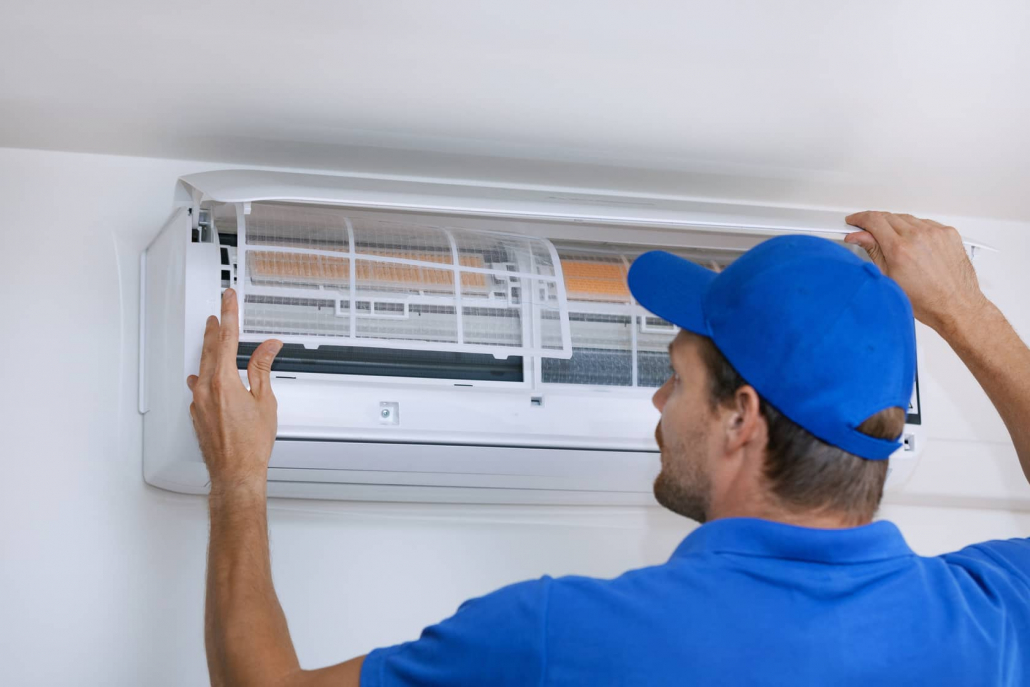Regular maintenance is needed on our HVAC units if we want them to make it through the winter and summer seasons. When in all of your time as a homeowner have you worried about the phrase “head pressure?” In fact, when have you ever heard the phrase “head pressure?” It is almost guaranteed that most homeowners do not know what the term means. What is head pressure in HVAC? It is generated by your gas compressor that is located in your air conditioning system.
Luckily, there is a pressure instrument that can detect whether or not your head pressure exceeds the normal range and is too high. Head pressure is okay as long as it isn’t outside the normal range. If a high head pressure is detected, you will need to call your local professionally licensed air conditioning service team.
What Determines High Head Pressure
A 410A system who have 400-418 PSIG on the high side, while the lower side is 120-130 PSI. If it is more than this, it is considered high. This will also depend on the weather and other conditions.

How Does This Happen
It is always a good idea to keep the head pressure lower because it can damage the system. This is especially true when It is combined with low suction. In addition, this shows there is an issue with the refrigerant system in the HVAC.
Most of the time, when an AC unit breaks down, it is from lack of maintenance or a dirty unit. Let’s explore some of the ways your HVAC head pressure can increase in the AC unit.
- Dirty Condenser Coils – a simple maintenance plan to keep your coils clean and free of debris will save you from high head pressure.
- Bad Fan Motor – is the most common reason for high head pressure. When your outside fan blades wear down they create a higher pressure. Also, if the condenser fan doesn’t work or has slowed, there could be effects.
- Refrigerant Issues – a leaking refrigerant unit can cause high head pressure.
- Non-Condensing Gas – this occurs when homeowners try to do it yourself and connect the lines to the wrong places. If the lines are not connected correctly, then the head pressure will increase and you will immediately need a professional repair team.
Head Pressure and Condensing Temperature Range
The speed of the condenser’s fans is adjusted by changing the speed of the fans. Also, the condensing temperature range can determine it.
For example, the head pressure can increase if the ambient temperature is too high. This can be determined by using a temperature metering device. Also, if the amperage of the motor is too high, the two of these together can cause the system to work overtime. This is common on hot summer days when the temperature and humidity are above 95 degrees.
What Does This Look Like or Sound Like
- The evaporator flash gas increases
- Suction pressure increases
- On the suction side, there is fluttering pressure
- High head pressure can also cause noises
- Condenser piping can have leakage
- The cooling may stop working
- An increase in utility bills and energy waste.
How Much Does It Cost
The average repair cost for an AC unit can vary based on materials that are needed to replace and labor charges. You are likely looking at a minimum of $150 for a service call and assessment of your equipment. Your price range is roughly $150 to $600 if you have to replace parts on the AC unit. Depending on the damage to your AC unit, you might be looking at a $450 to $1,000 repair job.
Other Recommended Maintenance
While you are having your HVAC unit serviced for high head pressure, you might want to have them check for a bad blower as well. There are so many working parts to the AC unit, that it is important to maintain them all. Learn about what a bad blower can actually do to your AC unit and why you have hot or cold air blowing.
Now is a great time to also determine how old your HVAC system is. Just like any other piece of equipment in or around your home, it’s a great idea to learn about the longevity of your system. Whether you’re buying a home or maintaining your current system, you should keep tabs on how old the HVAC system is. Proper maintenance will allow you to keep your system longer.
Lastly, keep in mind that your AC unit can leak from high pressures as well. How the AC unit could leak is important to know. Keeping your HVAC system maintained properly can save you time and money. Once a leak occurs, there are a few ways to fix it. Calling on a professional is also an important part.

When Do I Call A Professional
It is important to call on a professional at any moment that your HVAC needs assistance. A struggling HVAC unit can cause a major adjustment to your electric bills and leave you in a very hot and sticky situation. If you aren’t sure who to call in your local community, then reach out to your local home inspection team. They can inspect your HVAC system as well as the rest of the home. You might find other areas to repair and not just the AC unit. In addition, they can refer you to a reputable HVAC repair and service company.
Conclusion
Taking care of your HVAC unit on a yearly basis is key to avoiding major problems. No one likes to spend money on inspections, but they could be vital to you spending a lot less on repairs. There are many working components to your HVAC unit. If one piece fails or something happens to the unit, like a freeze-up or clogged drain line, repairs can be costly.
Calling on your local home inspection team can help you with assessing your HVAC unit on a yearly basis, but also offer up some other potential project needs. Getting your HVAC and home inspection done in the Spring is a great idea. You are winding down from the cooler months and gearing up for the hotter months. Reach out to Home Inspection Geeks will take a look at your HVAC unit during a home inspection in the Chicago area.



